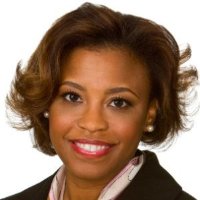Three Steps Towards Twitter Engagement as a Healthcare Professional Part II
 Alisa M. Hughley, MPH
Alisa M. Hughley, MPH
Author’s Note: Last week, I blogged on 4 Things I learned about MDs of Color on Twitter. I recently interviewed some physicians to learn how they use Twitter in their professional lives and gained a wealth of information from both last week’s post and from the information I have shared here.
Health care providers of all disciplines can gain benefits from participation in social media. A group of physician power users on Twitter shared their insights on maintaining a professional presence. By following a few key guidelines, many physicians can establish a presence that actively engages communities for the purposes of education while maintaining his or her responsibility as a healthcare professional.
Respect the line between patient engagement and practicing medicine online
“I always consider myself a representative of the hospital or whatever organization or institution.” and “I always recognized the importance of setting that boundary between sharing online, creating a dialog online versus practicing medicine.”
~ Ivor Horn, MD MPH is a pediatrician and regular contributor at MyBrownBaby.comExit Disclaimer based in Washington, DC
“My focus is in broadly educating the public… rather than counseling patients on their specific, personal health concerns."
~ Suzanne Hall, MD (@drsuzyyhallExit Disclaimer) is an OB-GYN and founder of Gynogroupie.comExit Disclaimer based in Michigan
“I am cognizant of what I put out and how I represent myself. I also tend to use experts outside of my hospital system or others to avoid any conflicts of interest in my reporting.”
~ Tyeese Gaines, MD (@doctorTyExit Disclaimer) is a physician – journalist who practices emergency medicine and serves as Health Editor at TheGrio.comExit Disclaimer
Respect HIPAA (Health Insurance Portability and Accountability Act)
HIPAA is the law. The Office for Civil Rights enforces the HIPAA Privacy Rule, which protects the privacy of individually identifiable health information.
“e share more in the elevator than we do online without realizing it…”Being careful about “what you say in the elevator, the same thing applies when you’re online.”
~ Dr. Horn
Enjoy the benefits
Finding and connecting with the community was the initial draw for our group of physician power users.
There have been other noteworthy benefits. Dr. Gaines points out access to resources, “keeps me abreast of the latest studies and articles related to health. I definitely find links to stories I may not have found until much later. It keeps me in the know.” Wen Dombrowski, MD MBA (@HealthcareWenExit Disclaimer) is chief information medical officer at VNA health group and says, “Twitter for me often sparks more engagement offline.” She went on to share professional and community collaborations that have resulted from her Twitter engagement.
Finally, community members that follow any of these physician power users on Twitter gain a glimpse beyond the professional. They catch sight of the total individual.